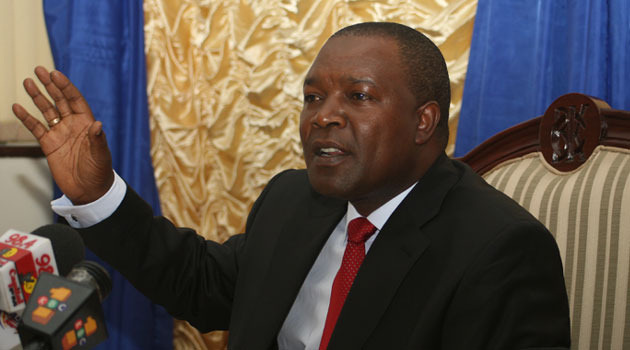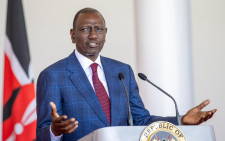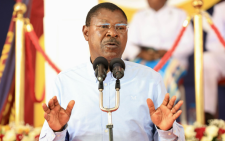Treasury faces tough Sh3.6tr Budget ripples

The National Treasury’s hope to expand the economy by an additional 0.6 per cent in 2023 could be hit by multi-layered risks watering down targeted interventions fronted by the Kenya Kwanza administration.
Banking on a Sh3.6 trillion budget to drive growth in the next financial year, the government projects that the Gross Domestic Product (GDP) will enlarge to 6.1 per cent up from 5.5 per cent witnessed since 2022, so that it can leverage the growth for more revenue and employment.
The growth margin is pegged on improved growth in areas like agriculture, housing, the creative economy, infrastructure development and Micro, Small and Medium Enterprises (MSMEs). The government will also leverage technology to earn more from an expanded tax base.
While Kenya’s economy remains resilient, the momentum has been disrupted again by the Russia-Ukraine conflict that has seen disruption in global trade with increased fuel, fertiliser and food prices.
Disrupted global trade
“For the first time in five years the inflation rate in Kenya is above the government target range mainly driven by supply side constraints occasioned by external shocks. Aside from these shocks, the Kenyan economy is confronted by various local bottlenecks,” warned Treasury in its draft Budget Policy Statement (BPS).
Treasury outlines undercurrents such as the recurrent drought affecting agricultural productivity, declining manufacturing productivity, skewed access to finance for business and development, rigidities in business regulatory framework, weak governance, fiscal risks, stalled public projects, pending bills, and high debt service as areas to watch.
According to Treasury, a one per cent decline in economic growth this year, from the projected 6.1 per cent in 2023, could cost Kenya up to Sh12 billion decline in revenue, meaning the country could miss meeting some of its financial obligations.
“If the projected real GDP growth in 2023 was to reduce by one percent, revenues would decline by Sh11.2 billion more than the decline in expenditure by Sh6.1 billion resulting to an increase in fiscal deficit of Sh5.1 billion in FY 2023/24,” says Treasury in the BPS 2023.
Elevated energy prices
Kenya’s economy expanded at a slower pace towards the end of 2022 when real GDP was 4.7 per cent in the third quarter compared to 6.7 per cent in the first quarter. This happened despite the gains witnessed in recovering areas like the service sector, wholesale and retail trade, and financial sectors.
Elevated energy prices, taxes, high importation costs, and tightening of monetary policy to match inflation levels have all combined to increase the production costs incurred by local businesses at a time when consumer purchase power is slumped.
The trend highlights a challenging business environment that might persist this year amid fears of an economic recession and the spill-over effect of tighter policy actions by developed economies like the United States.
Unfavourable weather conditions would mean that the country’s agricultural production is set to face another setback, worsening inflationary pressures and curbing export of key products like tea and flowers, the country’s biggest source of foreign exchange.
In December, inflation dropped marginally to 9.1 per cent but still remains above the targeted range of 2.5 per cent to 7.5 per cent, which could be achieved in the first quarter of 2023 despite lingering risks, according to CBK. “The [global] markets are beginning to turn. So, we are watching that space but it is a big concern for us because we do go to capital markets on a regular basis and we do expect to do that in future,” CBK Patrick Njoroge told CNBC News at the World Economic Forum in Davos, Switzerland.
Austerity measures
The Central Bank of Kenya (CBK) will be meeting next week to review 2023’s first monetary policy, which could be eased or tightened further in consideration of the rising inflation, global risks, and their impact on the domestic economy.
National Treasury Cabinet Secretary (CS) Prof. Njuguna Ndung’u also warned that 2023 is likely to shape up as a tough year for the global economy due to multiple factors that will impede the growth areas.
And with taxes and austerity measures being the centrepiece of funding Kenya Kwanza’s ambitious first Sh3.64 trillion 2023/24 budget, households and businesses will be hard pressed with additional burden to foot the Sh3 trillion tax bill targeted by the administration.
The ramped up in the 2023/24 financial year starting July, represents a massive 47.7 per cent increase from Sh2.03 trillion taxes that Kenya Revenue Authority (KRA) collected in the last fiscal year ending June 2022.












